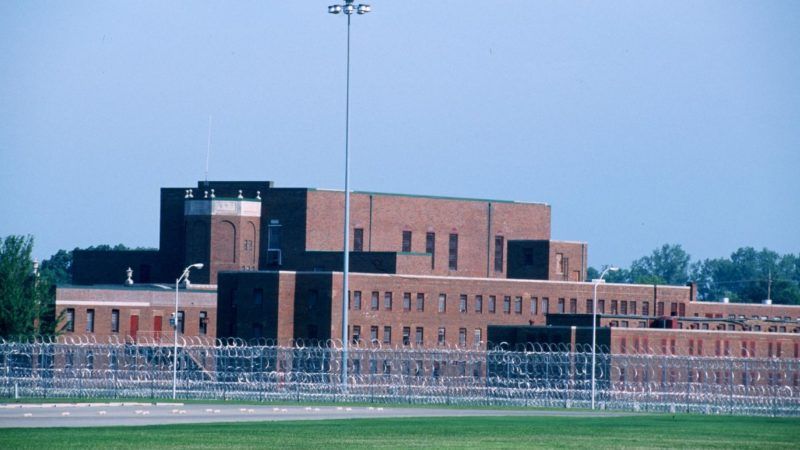The Trump Administration Executes Its Fourth Federal Prisoner in Two Months
A new modern record for putting inmates to death

Today, after entreaties to both the Supreme Court and President Donald Trump to intervene failed, Lezmond Mitchell, 38, was put to death at the U.S. Penitentiary in Terre Haute, Indiana, via lethal injection. He was pronounced dead by the Bureau of Prisons at 6:29 p.m.
Mitchell's execution is the fourth by the Department of Justice (DOJ) under Attorney General William Barr, coming just a month after three men were executed over the course of a single week. Those three men were the first to be executed by the federal government in 17 years. With Mitchell's execution, the Trump administration has the distinction of putting to death more federal inmates than any president since Dwight D. Eisenhower in the 1950s.
Mitchell was convicted of carjacking and murdering Alyce Slim, 63, and her granddaughter, Tiffany Lee, 9, in Arizona in 2001 when he was just 20. His underage accomplice was sentenced to life in prison. Mitchell, however, was sentenced to death.
Mitchell was a member of the Navajo Nation, as were the victims, and the murders took place on Navajo land. The leaders of the tribe have been objecting to Mitchell's execution and do not support the death penalty. Leaders argued that putting Mitchell to death violated the tribe's sovereignty. Under federal law, the DOJ is supposed to defer to the tribe's wishes whether to pursue the death penalty, but in Mitchell's case, they used an exception with the carjacking charges to get around the law's wording.
But some family members of the victims did not agree with the Navajo position. Donel Lee, brother of Tiffany, told an Associated Press reporter after the execution, "I thank President Trump and A.G. Barr for supporting my father and I on the execution. No thanks to the Navajo Nation president. … But now I'm at peace with it and justice is served." According to the A.P., when asked if Mitchell had any final words, he simply said, "No, I'm good."
At the same time that the DOJ is relaunching executions, we're seeing examples of the potential for the criminal justice system to go awry and harm innocent people, depriving them of their liberty and potentially their lives, in part due to overzealous prosecution. Today, in Florida, DNA evidence revealed that a man incarcerated for 37 years is innocent of a 1983 rape and murder in the Tampa area.
Robert Duboise was convicted partly on the strength of bite-mark evidence from a forensic dentist who matched marks on the victim's face with Duboise's teeth. The accuracy of this type of forensics science has long since been shown to be completely unreliable.
At one point Duboise was sentenced to death, but fortunately, it was later reduced by a judge to life in prison. This gave the Innocence Project, a nonprofit that works to exonerate people who have been wrongly convicted, a chance to work with the case and gave Hillsborough State Attorney Andrew Warren's office a chance to find new DNA evidence in a stored rape kit. The evidence exonerated Duboise, and he may be freed as early as Thursday.
There's very little about Lezmond's case that compares directly to Duboise's. However, when the federal government executes a prisoner on the same day that another person who had been on death row is exonerated, it really is worth asking what we actually gain from executing prisoners, when we know full well that one potential consequence is that the government will knowingly be putting to death people who are innocent.


Show Comments (45)